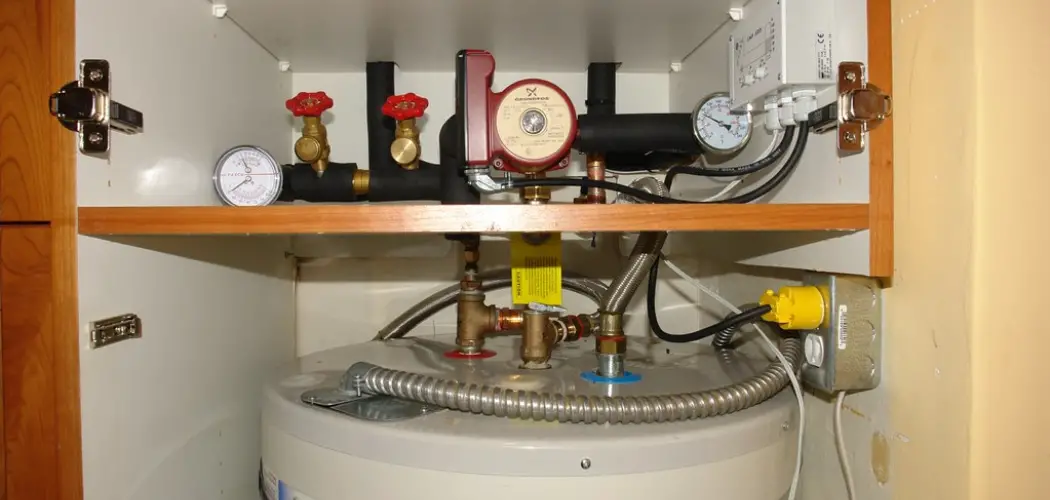Do you feel confused and overwhelmed every time you have to install a gas line for your water heater? Don’t worry – this task doesn’t have to be suffocating or perplexing. Whether you are an experienced professional or someone who’s new to the plumbing game, this tutorial will teach you how to install gas line for water heater.
You’ll learn why it’s important to carefully size your pipes, as well as practical tips on maintaining safe operation of the equipment while avoiding common pitfalls. With these step-by-step instructions, anyone can feel confident in their home improvement skills when installing a gas line for their water heater!
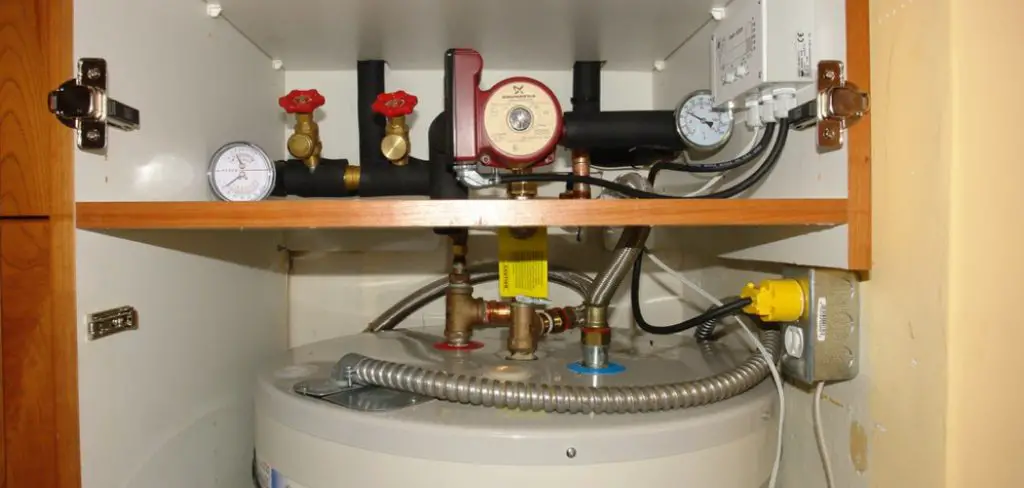
Why May You Want to Install a Gas Line for a Water Heater?
1 . To Save on Energy Costs
When it comes to heating water, gas is generally more efficient than electricity. Installing a gas line for your water heater can help you save money on utility bills in the long run. This is because natural gas burns cleaner and hotter, making it perfect for heating large amounts of water.
2 . To Increase the Water Heater Lifespan
Gas water heaters tend to have a longer lifespan compared to electric water heaters. This is because gas water heaters don’t use an electrical heating element, which can corrode over time and require frequent replacement. Installing a gas line for your water heater means you won’t have to worry about replacing any heating elements, as the burner will simply ignite when needed.
3 . To Have Hot Water Even During Power Outages
Electricity outages can leave you without hot water for an unknown amount of time. This is especially inconvenient during colder months when a cold shower isn’t exactly desirable. By installing a gas line for your water heater, you won’t have to worry about losing access to hot water during power outages.
4 . To Increase Home Value
If you’re planning on selling your home in the future, having a gas line installed for your water heater can increase its value. This is because many potential buyers prefer gas water heaters due to their energy efficiency and reliability.
5 . To Have More Control Over Water Temperature
With a gas water heater, you have more control over the temperature of your hot water compared to an electric water heater. This is because gas heaters have a faster recovery rate, meaning the water heats up quicker and stays hot for longer. By installing a gas line, you can ensure your water is always at the perfect temperature for your needs.
How to Install Gas Line for Water Heater in 5 Easy Steps
Step 1: Gather the Necessary Materials
Before beginning, make sure you have all the necessary materials for the gas line installation. You will need a pipe cutter, Teflon tape, adjustable wrench, and possibly a flare fitting if your gas line does not already have one.
Step 2: Shut Off Gas Supply
For safety reasons, it is important to shut off the gas supply to your home before beginning any work on the gas line. Locate the main gas valve near your meter and turn it off. If you are unsure how to do this, contact a professional for assistance.
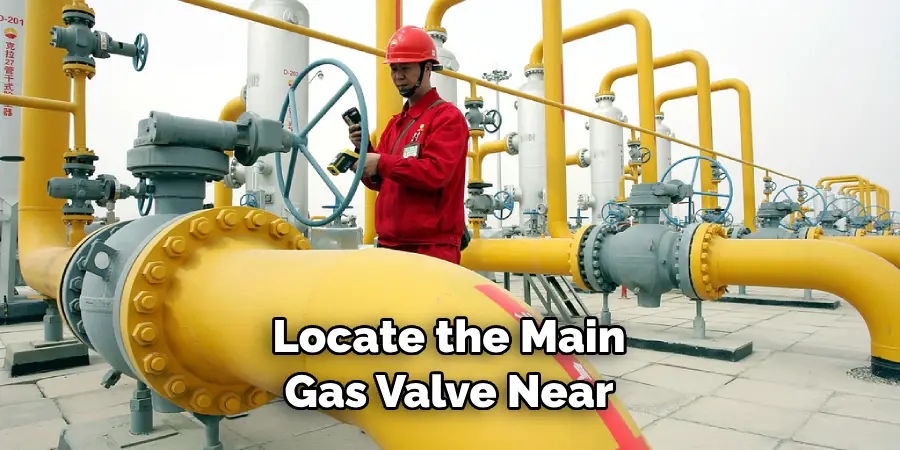
Step 3: Measure and Cut Pipe
Measure the distance from your water heater to the existing gas line, making sure to leave enough room for any bends or turns in the pipe. Use a pipe cutter to cut the gas line, ensuring a clean and straight cut.
Step 4: Install Flare Fitting (If Needed)
If your existing gas line does not have a flare fitting, you will need to install one before connecting it to the water heater. Wrap Teflon tape around the threads of the flare fitting and tighten it onto the end of the gas line.
Step 5: Connect Gas Line to Water Heater
Using Teflon tape, wrap the threads of the gas line connection on your water heater. Then, connect it to either the flare fitting or the existing gas line using an adjustable wrench to tighten it securely. Turn on the gas supply and check for any leaks by spraying a soapy water solution onto the connections. If bubbles form, there is a leak and the connections will need to be tightened or redone.
Additional Tips for Gas Line Installation
1 . Do Not Attempt if You are Not Confident
Gas line installation can be dangerous and should only be attempted by those who are confident in their abilities. If you have any doubts or concerns, it is best to contact a professional for assistance. Also, make sure to follow all safety precautions and guidelines when working with gas lines.
2 . Check Local Codes and Regulations
Before beginning any gas line installation, it is important to check your local codes and regulations. Different areas may have specific requirements for how the gas line should be installed. It is best to consult with a professional or do thorough research beforehand to ensure you are following all necessary guidelines.
3 . Use the Correct Tools
Make sure to use the correct tools for gas line installation. This includes a pipe cutter, Teflon tape, and an adjustable wrench. Using the wrong tools can result in improper connections and potential leaks.

4 . Double Check Connections
Before turning on the gas supply, it is important to double check all connections to ensure they are tight and secure. This will help prevent any potential leaks and ensure the gas line is installed correctly.
5 . Consider Hiring a Professional
If you are unsure about how to install a gas line for your water heater, it is always best to hire a professional. They have the knowledge, experience, and tools necessary to properly install the gas line and ensure your safety. While it may cost more upfront, it can save you time, stress, and potential hazards in the long run.
Frequently Asked Question
What Precautions Should I Take Before Installing a Gas Line for My Water Heater?
Before installing a gas line for your water heater, it is crucial to take some precautions to ensure safety and proper functioning. Some essential steps to follow are:
- Make sure you have the necessary permits: Before starting any work on a gas line, check with your local building department to obtain the required permits. This will ensure that your installation is up to code and safe.
- Shut off the gas supply: Before beginning any work, make sure to turn off the gas supply to your home. This can usually be done at the main shutoff valve near your gas meter.
- Gather all necessary tools and materials: To install a gas line for your water heater, you will need specific tools and materials, including a pipe cutter, wrenches, and flexible gas tubing. Make sure to have everything on hand before starting the installation.
- Properly ventilate the area: Gas appliances produce carbon monoxide, which can be harmful if not adequately vented. Ensure that the area where you will be working is well-ventilated by opening windows or using fans.
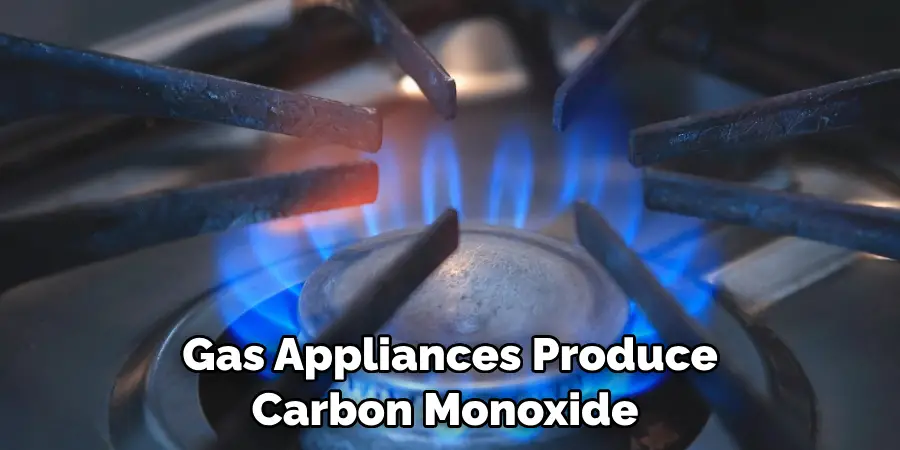
Can I Install a Gas Line for My Water Heater Myself?
While it is possible to install a gas line for your water heater yourself, it is always recommended to hire a professional. Installing gas lines can be dangerous and requires specific knowledge and skills that only professionals possess. A licensed plumber or gas fitter will ensure that the installation is done correctly and up to code, minimizing any potential risks.
How Much Does It Cost to Install a Gas Line for a Water Heater?
The cost of installing a gas line for a water heater can vary depending on various factors such as the length and complexity of the installation, permits, and labor costs. Generally, homeowners can expect to pay anywhere between $200 to $1,000 for this type of installation. It is always best to get quotes from multiple professionals and compare their prices before making a decision.
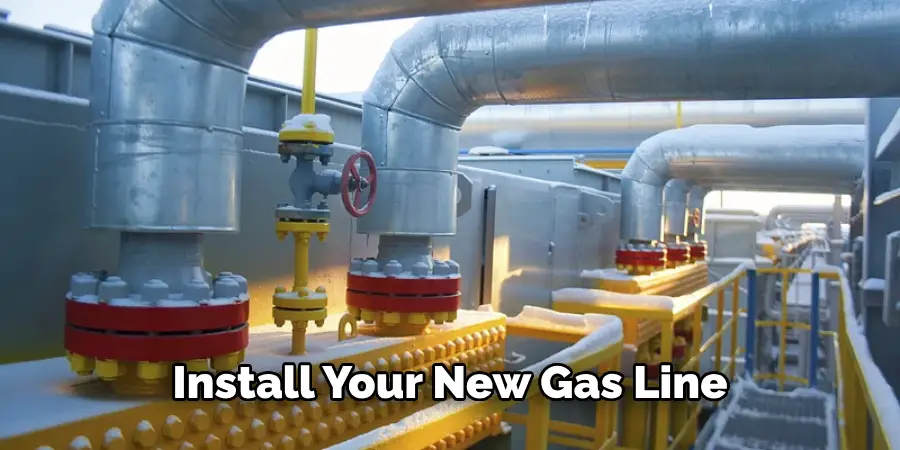
Conclusion
In conclusion, installing a gas line for a water heater requires attention to detail, taking safety precautions, and being familiar with the task. As long as you take your time and approach the project with patience and foresight, you can have your water heater up and running successfully in no time. Whether it be for upgrades or replacements, having your own gas line will help you save time and money in the future.
Now you know how to install gas line for water heater! Don’t hesitate to call a professional if you get confused or are worried about getting it wrong; they have experience dealing with issues like these regularly.
If you’re still unsure if this is something you want to tackle alone, don’t worry –there are tons of resources online that can provide guidance such as detailed videos, articles, or chat lines for answers to all of your questions. So what do you say? Take a deep breath and get ready to install your new gas line –you got this!

